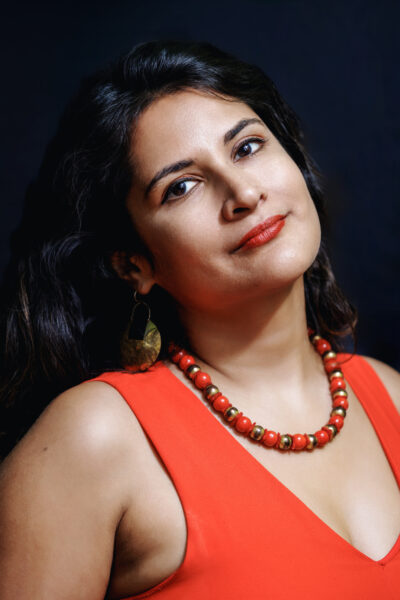Keya Mitra Wins Summer Creative Nonfiction Contest

Keya Mitra has been named the winner of the 2024 Summer Nonfiction Essay Contest for her essay, “Bruised and Glorious.” Amy Nolan’s essay, “The Shape of Her Hands,” was chosen as the runner up.
Mitra’s “Bruised and Glorious” is part of her manuscript Almost Born, a memoir-in-essays reflecting on fertility struggles experienced by women in their 40s, chronic illness, and communal healing and rebirth through the physical and emotional challenges of hiking multiple Camino Santiago pilgrimages. Mitra will receive a prize of $1000, and her essay will appear in the Spring 2025 edition of the journal.
Keya Mitra holds an MFA and Ph.D. from the University of Houston, has appeared twice in The Kenyon Review, and received a notable mention in Best American Short Stories 2018. Among her other honors are the 2021 Tobias Wolff Award for Fiction and the 2022 Arnold L. Graves and Lois S. Graves Award in the Humanities, recognizing her research in Meghalaya, India, which informs her novel-in-progress, Immigrant Delay Disease. A recipient of a Fulbright grant to India, Mitra is an award-winning professor of creative writing and literature at Pacific University.
The contest was judged by Safiya Sinclair of Montego Bay, Jamaica, whose poetry has been awarded a Whiting Award, the American Academy of Arts and Letters’ Metcalf Award, the OCM Bocas Prize for Caribbean Poetry, the Phillis Wheatley Book Award, and the Prairie Schooner Book Prize in Poetry. Her other honors include a Pushcart Prize, fellowships from the Poetry Foundation, Civitella Ranieri Foundation, the Elizabeth George Foundation, MacDowell, Yaddo, the Bread Loaf Writers’ Conference, and the Fine Arts Work Center in Provincetown. Her work has appeared in The New Yorker, Time Magazine, Harper’s Bazaar, Granta, The Nation, and elsewhere. She is currently a Professor of Creative Writing at Arizona State University.
Of Mitra’s essay, Sinclair said, “From the first sentence of ‘Bruised and Glorious’ I was drawn in by the sharp, exquisite language and the compelling exploration of the ways our own bodies, through illness, alienation, and colonial trauma, can be a site of exile. This essay is a beautiful, brilliantly moving work about the many ways that collective storytelling can create pathways to healing and to understanding ourselves in the world. It’s a love letter to the way language connects us, and gifts us a roadmap to ourselves; a way back to the home we thought we’d lost. When I finished, I immediately returned to the beginning to read it again. I came away wanting to stay with this writer, in this world; to walk the rest of the way with her.”